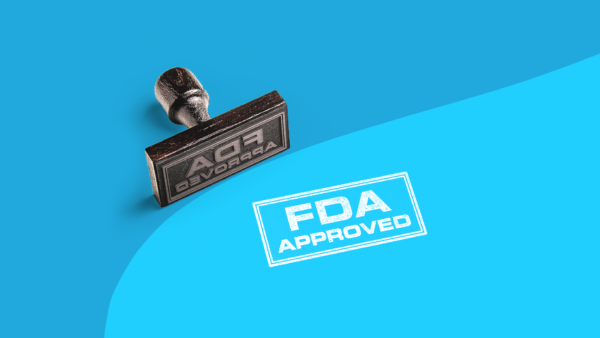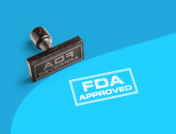Key takeaways
Quviviq (daridorexant) is a prescription drug used for the effective treatment of adult patients who have the sleep disorder insomnia.
The average out-of-pocket cost of Quviviq, before insurance coverage or discounts, is around $637 for 30 tablets.
Quviviq might be covered by health insurance or Medicare Part D, but it depends on the insurance company and specific plan.
There are currently no generic versions of Quviviq (daridorexant) on the market, but there are several Quviviq alternatives—and some of them have generic options.
Patients can potentially save money on Quviviq by using a SingleCare prescription discount card, considering alternative drugs, shopping around, and applying for government or nonprofit patient assistance programs.
Quviviq (daridorexant) is a prescription medicine in the class of drugs called dual orexin receptor antagonists, which can help adults with insomnia fall asleep and stay asleep at night. Without insurance, the average price for a 30-day supply of 50-milligram (mg) Quviviq tablets is $636.93. Even though Quviviq isn’t available in a generic form yet, there are ways to reduce its cost.
Is there a generic Quviviq?
Currently, there are no generic versions of daridorexant approved by the Food and Drug Administration (FDA). “Per the American Academy of Sleep Medicine’s insomnia guidelines for adults, there are alternatives with different mechanisms of action to treat insomnia,” says Tiffany Khieu, Pharm.D., an assistant professor at Marshall B. Ketchum University. “However, their level of evidence for efficacy is relatively weak, and benefits versus risks must be taken into consideration for each individual patient. I recommend patients see their primary care provider for a professional consult.”
Is Quviviq covered by insurance?
Some insurance plans will cover Quviviq for a sleep problem like insomnia, but it depends entirely on the insurance company. Some list it on their formularies as a preferred drug, which means they’re more likely to cover it, while it’s nonpreferred for others. Nonpreferred medications may have higher out-of-pocket expenses (like copays and coinsurance).
For people with Medicare Part D, certain plans may cover Quvivq, but most won’t. “From my own pharmacy experience, Quviviq was not covered by my patients’ Medicare part D plans,” says Ani Rostomyan, Pharm.D., CEO and founder of SheAni Wellness. “I only recall a single case when prior authorization was approved after a physician submitted a request on a patient’s behalf based on medical necessity.” That’s why it’s critical to check your plan’s formulary or speak with a representative from your plan to ensure coverage and prevent unexpected billing.
Whether it’s Medicare or private health insurance, the insurance company might require prior authorization, which means they have to pre-approve the doctor’s request before issuing coverage. Some plans may also require the patient to try other treatments first and will only cover Quviviq if those initial efforts don’t work—which is called step therapy.
How much does Quviviq cost without insurance?
It’s hard to put a price on better sleep, but Quviviq’s average out-of-pocket cost without coverage is $636.93 for a one-month supply—30, 50 mg tablets. That breaks down to $21.23 per dose, and over the course of one year, it could add up to $7,643.
Not everyone pays that amount, though. Insurance is the most common price-influencing factor, but that price could also depend on the pharmacist and location. Since each pharmacy sets its own prices, the actual cost of Quviviq can vary.
But that’s not the only thing that can influence drug prices. “Brand name medications typically have a high cost based on years of research needed to prove their efficacy, safety, and approval by FDA, which lasts up to 20 years,” Dr. Rostomyan says. “After the expiration of the patent, various other drugmakers can produce the medication, driving lower costs and market competition.”
Quviviq, however, doesn’t have a direct generic alternative. “[Quviviq’s] pharmaceutical company, Idorsia Pharmaceuticals, is the patent holder and has the exclusive rights to exclude others from making, using, and selling the drug,” Dr. Khieu says. Not only that, but the length of time it takes to approve a new drug can contribute as well. “On average, the timeline to create a new medication is around ten years, with most of that time dedicated to conducting clinical trials to determine safety and efficacy. Therefore, one of the main reasons for increased drug prices is to cover development,” she says.
But that doesn’t mean Quviviq is completely unrivaled in the medication marketplace. There are several other sleep aids available, and you might find that they’re more affordable or insurance-friendly. Of course, always check with a doctor before trying a new medicine.
Compare Quviviq prices to related drugs |
|||
|---|---|---|---|
| Drug name | Price of brand-name drug without insurance | SingleCare price | Savings options |
| Quviviq (daridorexant) | $634 for 30, 50 mg tablets | $488 for 30, 50 mg tablets of brand-name Quviviq | See latest prices |
| Ambien (zolpidem tartrate) | $788 for 30, 10 mg tablets | $3 for 30, 10 mg tablets of generic Ambien | See latest prices |
| Ambien CR (zolpidem tartrate ER) | $798 for 30, 12.5 mg tablets | $14 for 30, 12.5 mg tablets of generic Ambien CR | See latest prices |
| Lunesta (eszopiclone) | $1,089 for 30, 3 mg tablets | $9 for 30, 3 mg tablets of generic Lunesta | See latest prices |
| Belsomra (suvorexant) | $598 for 30, 20 mg tablets | $388 for 30, 20 mg tablets of brand-name Belsomra | See latest prices |
| Halcion (triazolam) | $215 for 30,0.25 mg tablets | $25 for 30, 0.25 mg tablets of generic Halcion | See latest prices |
| Restoril (temazepam) | $1,236 for 30, 30 mg capsules | $4 for 30, 30 mg capsules of generic Restoril | See latest prices |
| Rozerem (ramelteon) | $508 for 30, 8 mg tablets | $42 for 30, 8 mg tablets of generic Rozerem | See latest prices |
| DayVigo (lemborexant) | $413 for 30, 10 mg tablets | $294 for 30, 10 mg tablets of generic DayVigo | See latest prices |
Prescription drug prices often change. These are the most accurate medication prices at the time of publishing. The listed price without insurance references the price of brand-name drugs (unless otherwise specified). The listed SingleCare price references the price of generic drugs if available. Click the link under “Savings options” to see the latest drug prices.
How to get Quviviq without insurance
There are several ways to bring the retail price of brand-name medications down, even without insurance. Coupons and patient assistance programs from pharmaceutical companies can help save a lot, but not everyone is eligible. Here are a few other reliable ways to get the lowest possible price on Quviviq.
1. Sign up for SingleCare discounts
SingleCare offers discounts for Quiviq and more at over 35,000 pharmacies across the country, and they’re available to anyone, regardless of insurance status. Instead of the $634 average price of Quiviviq (for a 30-day supply), SingleCare members can get it for as low as $488. You can use SingleCare discounts even if you have insurance or Medicare, but you can’t use them in conjunction with insurance coverage. Registration on the SingleCare website is free, and getting the discount is as easy as presenting the card at a partner pharmacy.
2. Ask your doctor
There’s no substitute for the expertise of a licensed healthcare provider. Not only do they usually know effective ways to save on medications, but they can also give medical advice and other information based on each patient’s personal circumstances and health condition. “I would recommend that individuals consult their primary care provider to seek alternative therapeutic options,” Dr. Khieu says. “There are also nonpharmaceutical options, such as sleep hygiene, that can improve sleep prior to medication use.”
3. Consider an alternative
The table above outlines insomnia medications similar to Quviviq, and some have FDA-approved generic versions, which are often much cheaper. For example, generic Ambien can go for as low as $3.40 per one-month supply when you use a SingleCare discount. Compared to Ambien’s average cash price of $788 per month, that’s a huge difference. Of course, anyone considering any Quviviq alternative should consult a healthcare provider to make sure it will work well for their specific condition.
4. Compare prices
Shopping around can help get the best price on a lot of products, especially prescription drugs. Each pharmacy sets its own rates, and their prices can vary by hundreds. So call around and research prices before committing, and you might save quite a bit.
5. Look into government-funded and other assistance programs
Federal and state governments, as well as nonprofits, have programs that assist adult patients who need help paying for prescription drugs. Qualifying Medicare beneficiaries, for example, can enroll in Medicare Extra Help, and individuals with private insurance can try the Patient Advocate Foundation’s Co-Pay Relief. Plus, each state has its own separate programs. To qualify, applicants must meet specific income and insurance requirements.
“For uninsured patients, there are other resources available to find the best available cash price, such as the Medicine Assistance Tool,” Dr. Rostomyan says. Created by the Pharmaceutical Research and Manufacturers of America, this tool essentially functions as a search engine to help patients find financial resources.
Sources
- Daridorexant, MedlinePlus (2022)
- Clinical practice guideline for the pharmacologic treatment of chronic insomnia in adults: An American Academy of Sleep Medicine clinical practice guideline, Journal of Clinical Sleep Medicine (2017)
- Formularies, Healthaffairs.org (2017)
- Step therapy, Healthinsurance.org
- Patient Advocate Foundation Co-Pay Relief, Patient Advocate Foundation
- State pharmaceutical assistance programs, National Conference of State Legislatures (2022)











